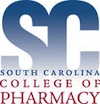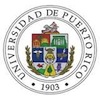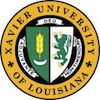Top 20 Pharmacy Schools in the South

 11. Auburn University Harrison School of Pharmacy, Auburn, Alabama
11. Auburn University Harrison School of Pharmacy, Auburn, Alabama
Pharmacy study began at Auburn University in 1885 “when the Board of Trustees of the (then) Alabama Agricultural and Mechanical College proposed that a course of study be offered in pharmacy.” Students had the opportunity to take preparatory courses in Alkaloids, Assaying, and Toxicology.
Today, the Auburn University Harrison School of Pharmacy offers several programs for aspiring pharmacists. The School offers the Pharm.D., M.S. and Ph.D. degrees in Pharmacy Care Systems and Pharmacal Sciences, and a Graduate Certificate in Medical Chemistry.
Estimated tuition and fees for in-state Pharmacy students total $20,006 for the 2012-2013 school year and $35,738 for non-residents.
About Auburn University: Auburn University was the first land-grant college in the South. Established as East Alabama Male College in 1856, the University is one of the few schools today to be designated a land, sea, and space grant university. The 1,875-acre campus is home to 25,134 students enrolled in more than 140 degree programs, throughout 13 colleges and schools.
 12. East Tennessee State University Bill Gatton College of Pharmacy, Johnson City, Tennessee
12. East Tennessee State University Bill Gatton College of Pharmacy, Johnson City, Tennessee
The East Tennessee State University Bill Gatton College of Pharmacy is “one of only 19 institutions in the U.S. and the only one in Tennessee with colleges of pharmacy, medicine, nursing, and public health on the same campus.” The College, which welcomed its first class in 2007, offers the Pharm.D., a Ph.D. in Pharmaceutical Sciences, and an introductory Pharmacy Practice Experience.
The College also offers several dual enrollment programs including the Pharm.D./MBA and the Pharm.D./MPH. Tuition for the Bill Gatton College of Pharmacy is $31,756 per year or $15,878 per semester (9 months) for both in-state and out-of-state students.
About East Tennessee State University: Founded in 1911 as East Tennessee State Normal School, East Tennessee State University (ETSU) is home to more than 15,000 students enrolled in 11 colleges and schools. The University, which sits in a 366-acre main campus, was named a “Best Southeastern College” by The Princeton Review in 2012. ETSU was also listed among the regions “Best 135 Institutions.”
 13. University of Louisiana Monroe College of Pharmacy, Monroe, Louisiana
13. University of Louisiana Monroe College of Pharmacy, Monroe, Louisiana
The University of Louisiana Monroe College of Pharmacy is Louisiana’s only state supported pharmacy program. Offerings include the Pharm.D., and Ph.D. degrees in Toxicology, Clinical and Administrative Science, Medicinal Chemistry, Natural Product Chemistry, Pharmaceutics, and Pharmacology. The College also offers a B.S. in Toxicology.
Tuition for Monroe College of Pharmacy is $9,915 per semester for residents and $18,764 per semester for non-residents. Undergraduate tuition is $3,159 per semester for residents and $8,445 per semester for non-residents.
About University of Louisiana at Monroe: The University of Louisiana at Monroe was established in 1931. The school sits on a 238-acre campus and it is home to nearly 9,000 students. The University of Louisiana offers more than 40 academic programs throughout several colleges and a graduate school.
 14. South Carolina College of Pharmacy, Charleston-Columbia, South Carolina
14. South Carolina College of Pharmacy, Charleston-Columbia, South Carolina
The South Carolina College of Pharmacy (SCCP) was established in 2004. Campuses are housed at the Medical University of South Carolina (MUSC Charleston) and at University of South Carolina Columbia (USC Columbia). In addition to the MUSC and USC campuses, South Carolina College of Pharmacy has a campus at the Greenville Hospital System and University Medical Center in Greenville, SC.
Program offerings for the South Carolina College of Pharmacy include the Pharm.D., and dual degree programs including the Pharm.D./MBA, Pharm.D./MPH, Pharm.D./Ph.D., and the Pharm.D./M.S. in Clinical Research. The College also offers three elective tracks including Community Pharmacy, Nuclear Pharmacy, and Pre-residency.
Tuition for the South Carolina College of Pharmacy is $22,450 per year for residents, and $33,526 per year for non-residents. Tuition rates are for Professional Years 1-3. Tuition for Year 4 is $19,694 for residents, and $29,366 for non-residents.
 15. Samford University McWhorter School of Pharmacy, Birmingham, Alabama
15. Samford University McWhorter School of Pharmacy, Birmingham, Alabama
Established in 1927 as the Howard College Department of Pharmacy, the McWhorter School of Pharmacy began with just two faculty members and a handful of students. Today, the School is home to 60 faculty members and staff and it welcomes hundreds of students each year.
The Samford University McWhorter School of Pharmacy is home to several institutes and centers including the Drug Information Center, the Pharmaceutical Sciences Research Institute, and the International Journal of Pharmacy Education and Practice.
The School offers the Pharm.D, a Joint Pharm.D./MBA, and a Joint Pharm.D./Business Minor.
Tuition is $1,356 per credit hour for less than 12 credits (each semester) and $16,690 for 12-21 credits (per semester).
About Samford University: Chartered as Howard College in 1841, Samford University opened with just 31 students. Today, with nearly 5,000 students, the school is the largest privately supported university in the State of Alabama. Named a “Best Southeastern College,” by Princeton Review, Samford University sits on a 212-acre campus and it offers more than 150 academic programs.
 16. University of Puerto Rico School of Pharmacy, San Juan, Puerto Rico
16. University of Puerto Rico School of Pharmacy, San Juan, Puerto Rico
Established in 1913 as a Department of Pharmacy, the University of Puerto Rico School of Pharmacy was “the first health professional program to be offered at the higher education level in Puerto Rico.” It was also the first health professional program to be accredited in Puerto Rico. In 1989, the Department changed its name to the School of Pharmacy.
Offerings include the Pharm.D., and a M.S. in Pharmacy with options in Pharmaceutical Sciences and Industrial Pharmacy. Annual tuition for the University of Puerto Rico School of Pharmacy is $4,112 for residents and $7,513 for non-residents.
About University of Puerto Rico: The University of Puerto Rico is the oldest university in Puerto Rico. The University opened with just 20 students and is now home to nearly 62,000 students. This public university sits on more than 250 acres and it offers more than 400 academic programs throughout 11 colleges and schools.
 17. Palm Beach Atlantic University Lloyd L. Gregory School of Pharmacy, West Palm Beach, Florida
17. Palm Beach Atlantic University Lloyd L. Gregory School of Pharmacy, West Palm Beach, Florida
The Lloyd L. Gregory School of Pharmacy is home to more than 300 students and 30 faculty members made up of leading pharmacists, experts, and scholars. Accredited by the Accreditation Council for Pharmacy Education, the Gregory School offers the Pharm.D. degree, a Joint Pharm.D./MBA, and a B.S. in Medicinal Chemistry. Tuition for the Gregory School of Pharmacy is $16,500 per semester.
About Palm Beach Atlantic University: Palm Beach Atlantic University was established in 1968. This interdenominational university has a student population of 3,579. The school, which sits on a 25-acre campus, offers more than 50 academic programs throughout nine schools.
 18. Xavier University of Louisiana College of Pharmacy, New Orleans, Louisiana
18. Xavier University of Louisiana College of Pharmacy, New Orleans, Louisiana
The Xavier University of Louisiana College of Pharmacy ranks among the nation’s Top 20 Colleges of Pharmacy in research funding by the National Institutes of Health (NIH). Established in 1927, the College is accredited by the Accreditation Council for Pharmacy Education (ACPE), and it is home to more than 600 students. The College of Pharmacy offers the Pharm.D. degree.
College of Pharmacy tuition and fees total $31,005 for Professional Years 1-3 (P1, P2, P3) and $32,650 for P4 (10 Months).
About Xavier University of Louisiana: Xavier University of Louisiana is the only historically Black Catholic College or University in the U.S. Founded in 1925 by St. Katharine Drexel and the Sisters of the Blessed Sacrament, the school sits on a 27-acre campus in the bustling City of New Orleans and it is home to 3,121 students. Listed among the nation's “Best 378 Colleges” by Princeton Review (2014), Xavier University offers more than 50 academic programs at all degree levels.
 19. Sullivan University College of Pharmacy, Louisville, Kentucky
19. Sullivan University College of Pharmacy, Louisville, Kentucky
Sullivan University College of Pharmacy holds three accreditations—Southern Association of Colleges and Schools (SACS) Commission on Colleges, Commission on Colleges of the Southern Association of Colleges and Schools, and The Accreditation Council for Pharmacy Education (ACPE). The College offers the Pharm.D. and the Pharm.D./MBA. Both programs are offered at the Louisville campus only.
Tuition for the Pharm.D. program is $124,000 for 36 months and $495 per credit hour for the MBA program.
About Sullivan University: Sullivan College was founded in 1962 as Sullivan Business College—a one-year school of business. The College received “authority” to award the Associate Degree in 1972. Today, the school is home to around 6,000 students and it awards Career Certificates, Diplomas, and academic programs at all degree levels. The University, which his home to nine colleges, schools, departments and institutes, has campuses in Louisville, Lexington, and Fort Knox, Kentucky. Students may also complete many degree programs online.
 20. Florida A&M College of Pharmacy and Pharmaceutical Sciences, Tallahassee, Florida
20. Florida A&M College of Pharmacy and Pharmaceutical Sciences, Tallahassee, Florida
Florida A&M College of Pharmacy and Pharmaceutical Sciences (COPPS) is the only College of Pharmacy in the U.S. that offers nationally accredited Master of Public Health (MPH) and Doctor of Public Health (DrPH) degree programs. Home to more than 1,100 students, the College is fully accredited by the Accreditation Council for Pharmacy Education (ACPE) and the Council on Education for Public Health (CEPH).
In addition to the MPH and the DrPH, the College of Pharmacy and Pharmaceutical Sciences offers the Pharm.D., Pharm.D./MBA, a Ph.D. with five concentrations, and a B.S. in Pharmaceutical Sciences. Ph.D. concentrations include Medicinal Chemistry, Pharmaceutics, Pharmacology/Toxicology, Environmental Toxicology, and Health Outcomes Research and Pharmacoeconomics.
Students may take classes at the main campus in Tallahassee or at additional instructional sites in Tampa, Davie, and Jacksonville, Florida.
Tuition and fees for undergraduate programs are $157.78 per credit hour for residents and $549.80 per credit hour for non-residents. Tuition and fees for graduate programs are $405.67 per credit hour for residents and $1,022.04 for non-residents.
About Florida A&M College: Florida Agricultural and Mechanical University (FAMU) was founded in 1887 and began with just fifteen students and two instructors. Today, the school is home to more than 12,000 students from the U.S. and 70+ other countries. Part of the State University System of Florida, FAMU sits on a 422-acre campus and it offers nearly 100 degree programs, throughout 14 colleges and schools.
Pages

- Facebook Like
- Google Plus One
- 126510 reads


